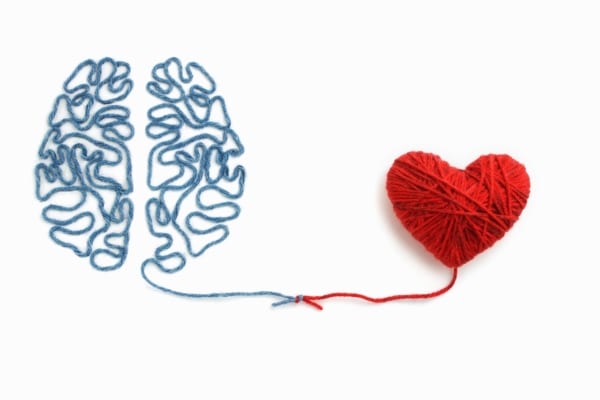
What can the scientists working in the lab teach us about love?
In recent years, we’ve seen more and more research on the intersection of neurobiology and psychology, explaining the connection between our brain, nervous system, and emotional world. Of the vast amount of information out there, there are certain key insights that I usually share with couples coming to counseling—and I’d like to share them with you, too.
So what can scientists working in the lab teach us about love?
1. “Are you there for me?” The relationship as a safe place.
Our brains are designed for survival. But we usually think of “survival” in terms of being physically attacked or hurt. We now know that feeling connected to the people we love is as important as physical survival. When we need our partner and they don’t respond to us—or worse, threatens to break up—our brain reacts as if we’re in danger and switches to emergency mode.
To create emotional safety, make sure not to threaten your relationship, even when you’re angry or fighting. For a great relationship, you need to give your partner the feeling that you’re there for them no matter what.
2. “I’m ok when you’re ok.” Sharing emotions is crucial.
Have you noticed that when your partner feels anxious or stressed, you feel it, too? Similarly, when they’re happy, some of that rubs onto you as well. There’s a scientific basis for this phenomenon: our brains contain “mirror neurons” designed to establish empathy and secure bonds—therefore, we tend to feel what other people are feeling, especially those close to us.
This means that it’s in your best interest to know how to calm your partner down or cheer them up. Yes, it’s their responsibility first—but because our partner’s emotional state can impact us so deeply, it’s crucial to have some tricks in your bag for helping them feel happy or moving them out of distress.
3. “Look me in the eyes…” Nonverbal communication matters.
Have you ever had the experience where your partner says to you, “What’s going on with you? Why are you like that?” And you think to yourself, “What? I didn’t do anything!” The automatic, emotional side of our brain is constantly checking out our partner for signs of safety and connection. The key here is to know that it’s not what they say, it’s the nonverbal communication that really affects us. It’s enough to see something on our partner’s face, the look in their eyes, or the tone of their voice to make us feel cared for—or set us off.
Here’s a tip: When you’re having an important conversation, be sure to maintain enough eye contact with each other. This helps break the trance of your thoughts and gives your partner the message that you’re present with them.
Brain research brings us closer to having a map for successful relationships. Among other things, it can help us understand the hidden motivations of our loving behavior as well as our fights.
 Call Us Now
Call Us Now



